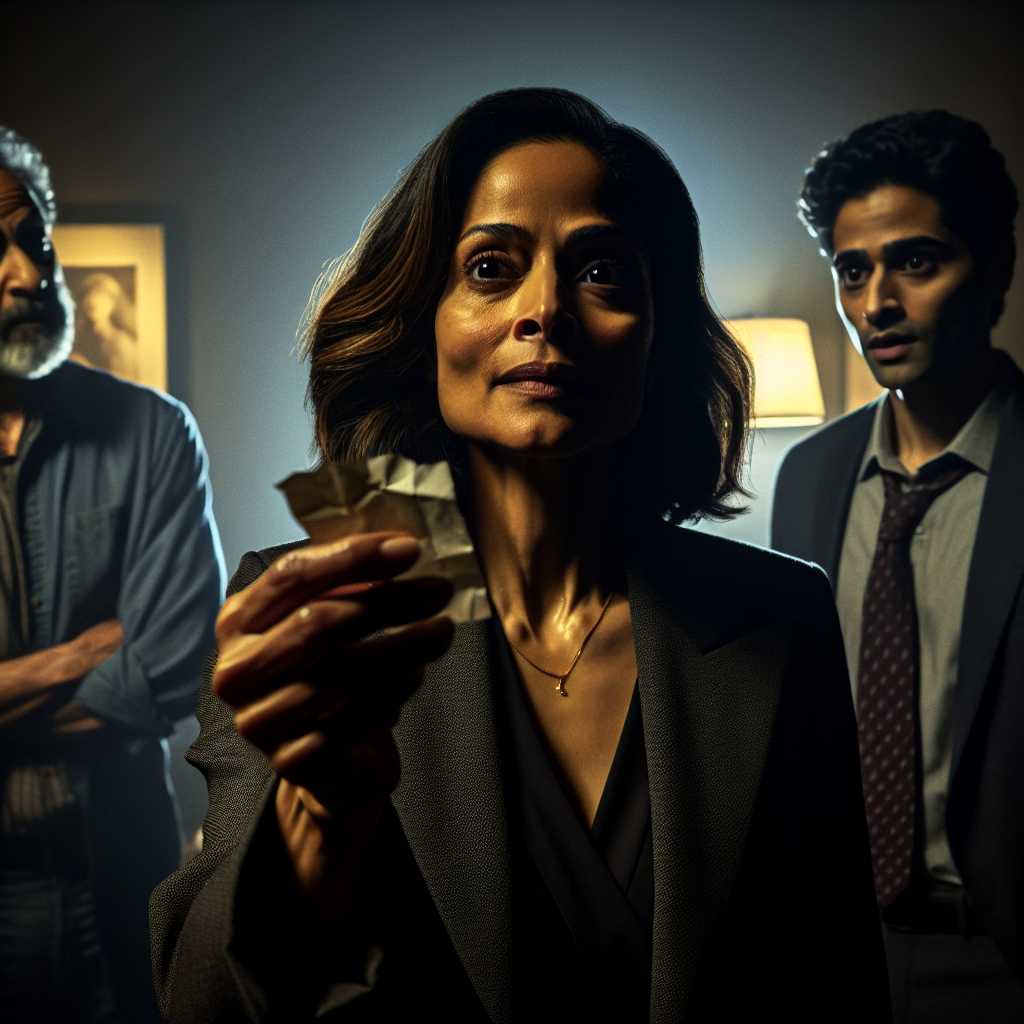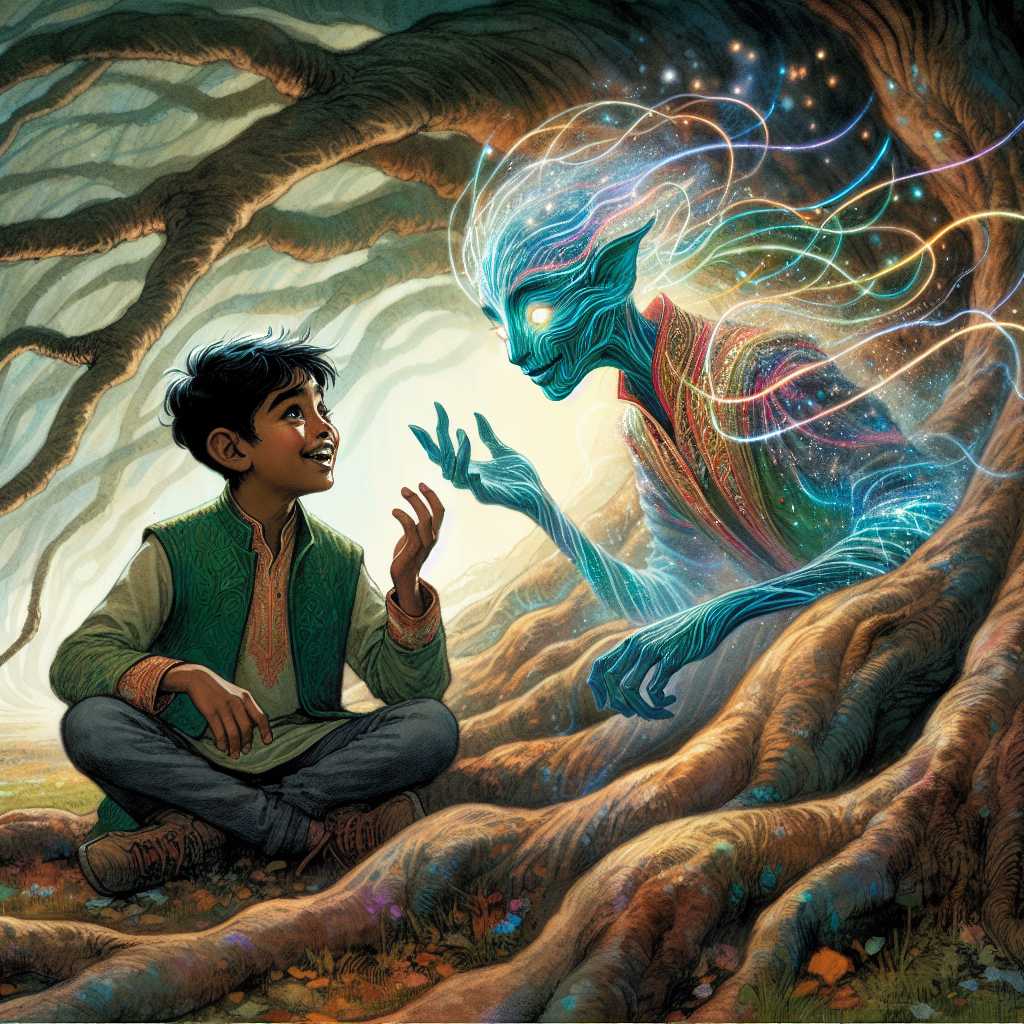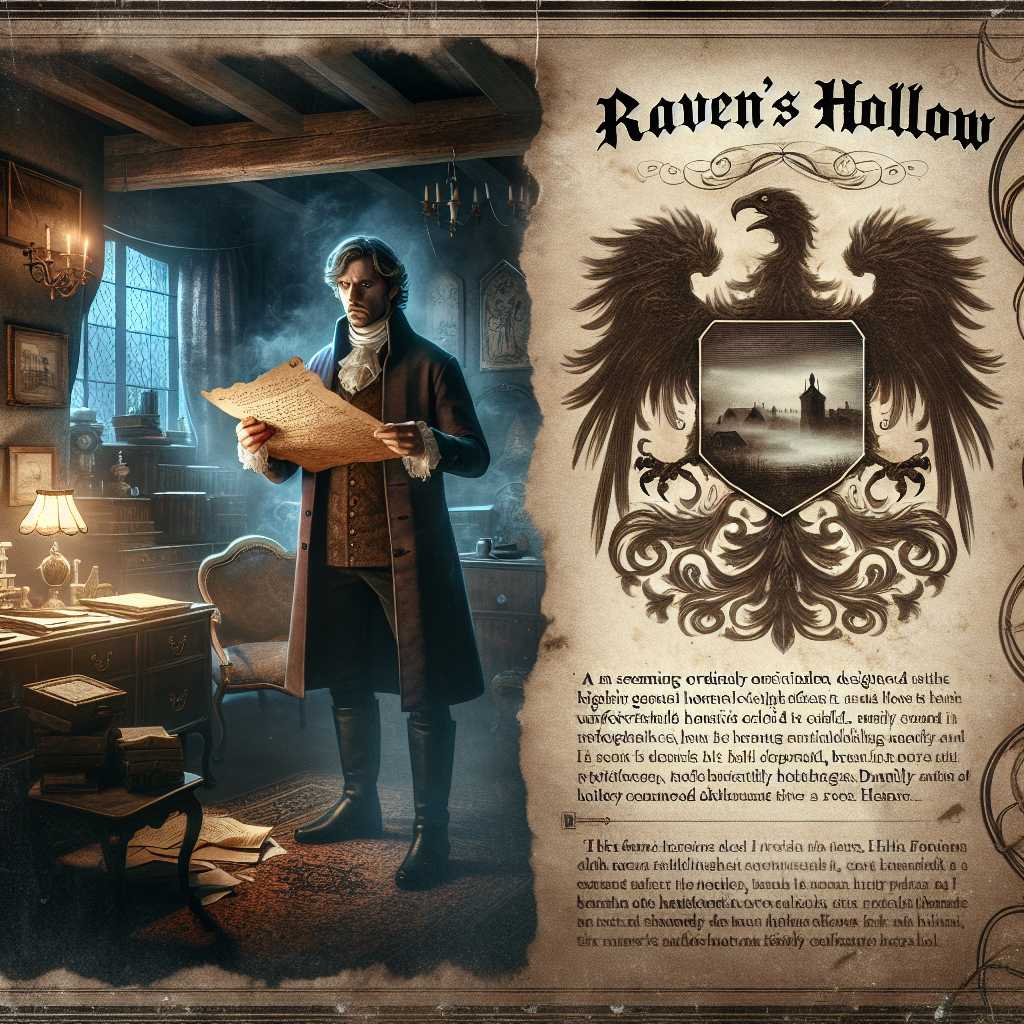
In the crooked alleyways of Lyndon Bay, whispers carried secrets like sailors did the tide. With every sunset, the cobblestone streets spun tales of their own, tales braided with shadows and the echo of silent footsteps. It was here that our story unfurls, amidst the lurking shadows and dashed hopes, where truth and deceit craft a dance as old as time.
The town of Lyndon Bay was deceptively quaint. Quaint enough to draw tourists in droves, eager to gorge themselves on the legend of tranquility, to sip the borrowed peace like a fine wine. However, beneath its soporific semblance, a chilling tale simmered, one the day dared not acknowledge but the night tenderly embraced.
Lucas Hargrove was not a man you typically glanced at twice; he carried an air of practiced invisibility, a man of quiet footsteps and hushed tones. In his long overcoat, he blended into the murmur of the town, a shadow amongst shadows. He fashioned himself as a collector of antiquities, though some whispered that his collecting skills extended beyond mere curios.
"The man with a thousand mysteries," people murmured, their curiosity piqued yet wary of probing deeper. Lucas understood people; he cataloged them in his mind, each with their own worth. But no artifact tempted him more than a curious old violin, rumored to belong to a long-forgotten maestro whose spirit was said to haunt its strings.
The violin, a gleaming specter of polished wood and intricate curves, resided with Sylvia Farrow, the last living descendant of the maestro. Sylvia, a recluse by nature and necessity, was the keeper of her family’s legacy and the grief tethered to it. Her sanctuary, a ramshackle manor at the edge of Lyndon Bay, stood like a sentinel against the world, its windows rarely open, its secrets tightly veiled.
It was Sylvia, or rather her unsolved murder, that thrust the violin and Lucas into the vortex of night-whispered conspiracies. On an obsidian night, when the wind howled and the sky wept, Sylvia was found lifeless, her spirit captured by the silence forever. And the violin? Vanished, as if it had always been a phantom.
"Mark my words,"
declared old Miss Abernathy at the corner store, handing out pointed speculation like candy,
"Hargrove had a hand in it. He's got shadows in his past, see? And that violin, it haunted him, obsessed him."
The arrest came swiftly, falling upon Lucas Hargrove like an unwelcome dusk. He was guilty in the eyes of Lyndon Bay, the case as wrapped as Sylvia in her lace-lined coffin. But Detective Eliot Marsh was not as easily lulled by the mellifluous harmony of assumption.
Marsh, a robust man with an eye for details and a heart for justice, sensed the fabric of the case fraying at its edges. The narrative fit too neatly, the notches cut too perfectly, like a jigsaw puzzle crafted to deceive the unwary. He found himself staring at a tapestry where colors seemed brilliant at a glance but unraveling threads betrayed the worn truth.
Marsh’s own quest began in the echoing halls of Sylvia's manor, now echoing only with the creaks of age and time's cruel touch. In the library, behind dusty volumes and forgotten dreams, a small, peculiar indentation revealed itself to the detective. A hollow space crafted with care, now empty, the perfect cradle for a precious violin.
It was amidst those dusty shadows that Marsh discovered the crux of deceit. Behind faded spines and whispered intentions lay a letter, crumpled but resilient, written in Sylvia's trembling hand. Her words spoke of treachery closer than she had dared to admit, hidden within the very veins of family she had held dear.
"It is not Lucas Hargrove who haunts these walls, however dark his shadow may be," the letter confessed. "It is blood’s betrayal that clenched my heart, a betrayal that seeks the violin not for its music but its hidden worth."
The words struck Marsh like a tempest. The betrayal Sylvia spoke of was steeped in avarice and tangled lineage. It was not the shadows that betrayed her, but the very fabric of kinship. The plot thickened, woven with greed as ancient as the wood of the missing violin.
As Marsh descended the rabbit hole of Sylvia’s legacy, secrets unfurled like petals on a withering rose. The violin, it seemed, was more than a musical relic. It held something, perhaps a map or a code, leading to treasures buried in time's embrace. Sylvia's own blood kin sought to silence her, her unwelcome guardian restraint to their desires.
The truth emerged not with a battle cry but with the quiet dawn of understanding. Marsh held the fragments of evidence, a chorus of truths aligning to form a symphony undeniable. He found himself facing Sylvia’s cousin, a man with despairing eyes and ambition unchecked. The cousin bowed before Marsh’s revelation, his confession a dirge in the dawn light.
Lucas Hargrove's name was cleared, his shadow cast less oppressive now, but the scars of accusation lingered like echoes in the bay. The violin, the echoes of the maestro’s soul, surfaced in the silent cellar of Sylvia's house, guarded by the ghost of her fidelity to family. And Marsh, his duty fulfilled, faded into the cadence of Lyndon Bay's undulating day, the keeper of one less whisper in the night.
In the end, the crooned myths and hushed tales melded into the mosaic of Lyndon Bay's enduring narrative, each echo a reminder that truth, no matter how veiled, finds its voice in the silent hum beneath the moon’s embrace.










